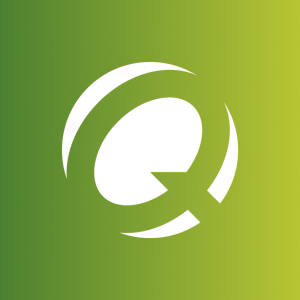SAINT LOUIS UNIVERSITY TEAMS UP WITH QUEST DIAGNOSTICS ON ACCELERATED BACHELOR OF SCIENCE IN MEDICAL LABORATORY SCIENCE
Quest Diagnostics partners with Saint Louis University to launch an accelerated bachelor's degree program in medical laboratory science. This 16-month program aims to address the critical shortage of medical laboratory scientists, essential for performing diagnostic tests that inform patient diagnoses and treatments. Currently, the U.S. lacks enough graduates to meet the projected demand of 12,600 new jobs in this field by 2030. The collaboration ensures hands-on training and a potential 100% job placement rate for graduates, highlighting the urgent need for skilled professionals.
- Collaboration with Saint Louis University to fill workforce shortages in medical laboratory science.
- 16-month accelerated program offers both online courses and hands-on clinical experience.
- Projected growth in the field: 17% increase by 2030 with 12,600 job openings.
- 100% job placement rate within six months for graduates of the existing MLS program.
- Current education pipeline only meets half of the future demand for medical laboratory scientists.
- One-third of Quest's staff is at or above retirement age, increasing urgency for new professionals.
Insights
Analyzing...
Cutting-Edge Program to Help Fill the Dire Shortage of Behind-the-Scenes Heroes Who Perform Laboratory Testing that Informs Patient Diagnosis, Treatment
ST. LOUIS, Oct. 28, 2022 /PRNewswire/ -- A preeminent Jesuit research university and the world's leading provider of diagnostic information services are teaming up to fill a dire shortage of workers in a vital but little-known field.
Saint Louis University and Quest Diagnostics (NYSE: DGX) are partnering to launch an accelerated bachelor's degree program in medical laboratory science. The 16-month program will combine online academic courses with intensive hands-on learning and clinical experiences in Quest's Lenexa, Kansas laboratory.
"Medical laboratory scientists are the hidden heroes who help save lives every day," said Amanda Reed, Medical Laboratory Science Program director and assistant professor in the Department of Clinical Health Sciences at Saint Louis University's Doisy College of Health Sciences.
Medical detectives
Medical laboratory scientists detect diseases ranging from COVID-19 to cancer.
Using sophisticated equipment and advanced technologies, an estimated 335,000 medical laboratory scientists across the United States perform 14 billion diagnostic tests each year to inform patients' diagnoses and treatment. This includes identifying pathogens that cause infections and abnormal blood cells that could be signs of cancer or other diseases. MLS professionals also perform glucose tests that lead to the diagnosis of diabetes, which affects an estimated 37 million Americans.
"We're excited to team up with SLU, a leader in educating the next generation of lab leaders," said Doug Hamilton, vice president, Laboratory Operations for Quest's Midwest Region. "The number of people currently pursuing a bachelor's degree in medical laboratory science will satisfy only half of the demand for these workers during the next 10 years.
One-third of our staff is currently at or above retirement age, making the need for MLS professionals even greater."
A growing need, dwindling programs
Despite performing lifesaving work and receiving great pay and benefits – the average annual salary for medical laboratory science graduates in the United States is
The field is projected to grow
A history of MLS education
SLU's collaboration with Quest is designed to fill these gaps with a rigorous program that exposes student to the inner workings of a busy medical laboratory.
SLU has a long history of educating medical laboratory scientists. The university's ground-campus MLS program in St. Louis was among the first in the nation and has achieved more than 85 years of continuous accreditation. There is a
In Lenexa, students will gain analytical skills and technical expertise in clinical chemistry, medical microbiology, immunohematology, hematology and clinical immunology. After successfully completing the program, graduates will be eligible to take the national board of certification examination administered by the American Society for Clinical Pathology (ASCP).
While most patients will never see a medical laboratory scientist, Reed said these professionals' impact on patient care is profound. "We impress upon our students that behind every blood draw and nasal swab is a person," she said.
The Lenexa program is geared to those with at least 60 college credit hours or a bachelor's degree in another field. There will be three start dates per year – spring, summer and fall – beginning in 2023.
For more information, visit https://medlabscience.slu.edu/.
Founded in 1818, Saint Louis University is one of the nation's oldest and most prestigious Catholic institutions. Rooted in Jesuit values and its pioneering history as the first university west of the Mississippi River, SLU offers more than 13,500 students a rigorous, transformative education of the whole person. At the core of the University's diverse community of scholars is SLU's service-focused mission, which challenges and prepares students to make the world a better, more just place.
Quest Diagnostics empowers people to take action to improve health outcomes. Derived from the world's largest database of clinical lab results, our diagnostic insights reveal new avenues to identify and treat disease, inspire healthy behaviors and improve healthcare management. Quest annually serves one in three adult Americans and half the physicians and hospitals in the United States, and our nearly 50,000 employees understand that, in the right hands and with the right context, our diagnostic insights can inspire actions that transform lives. https://www.questdiagnostics.com/
![]() View original content:https://www.prnewswire.com/news-releases/saint-louis-university-teams-up-with-quest-diagnostics-on-accelerated-bachelor-of-science-in-medical-laboratory-science-301662409.html
View original content:https://www.prnewswire.com/news-releases/saint-louis-university-teams-up-with-quest-diagnostics-on-accelerated-bachelor-of-science-in-medical-laboratory-science-301662409.html
SOURCE Saint Louis University







